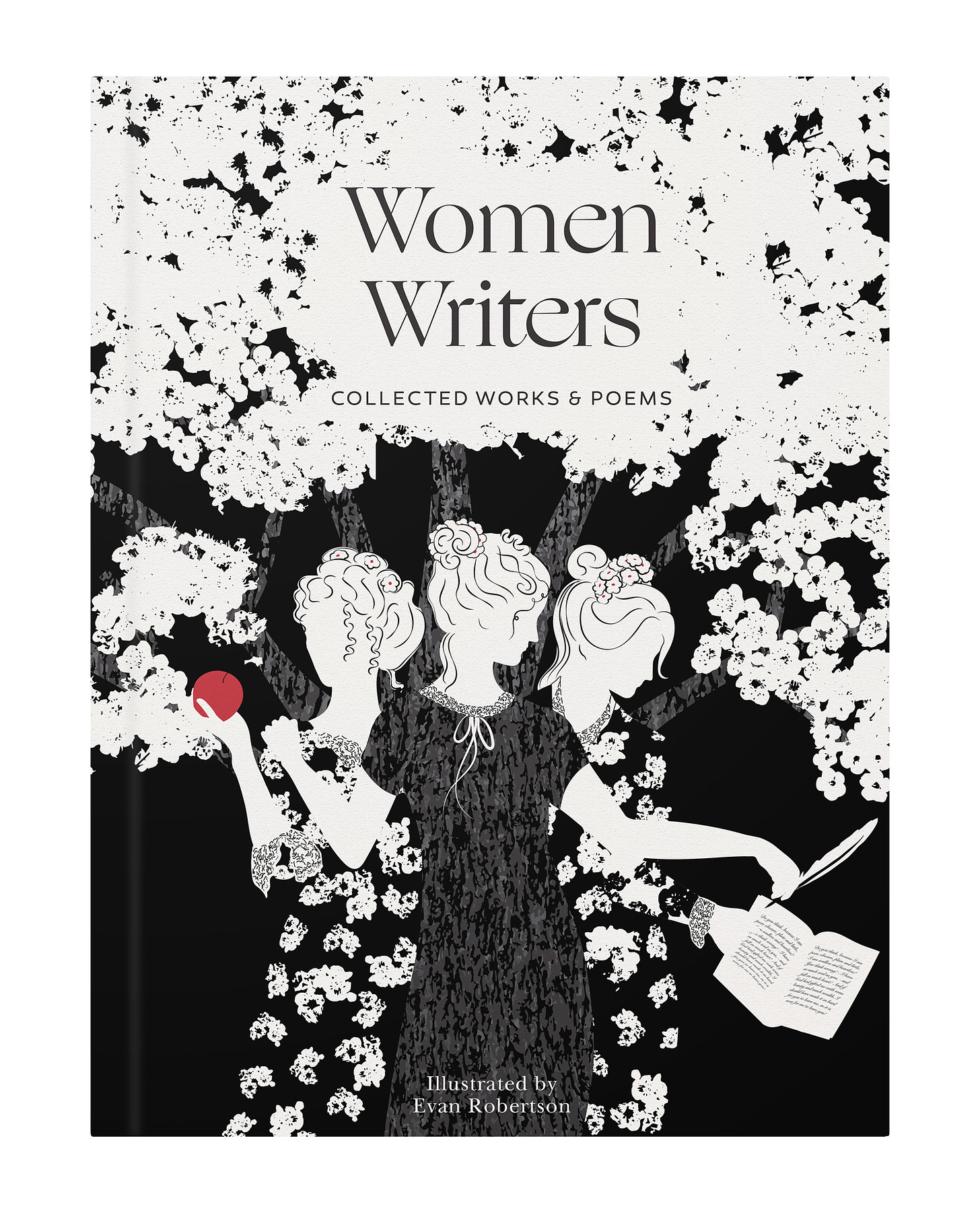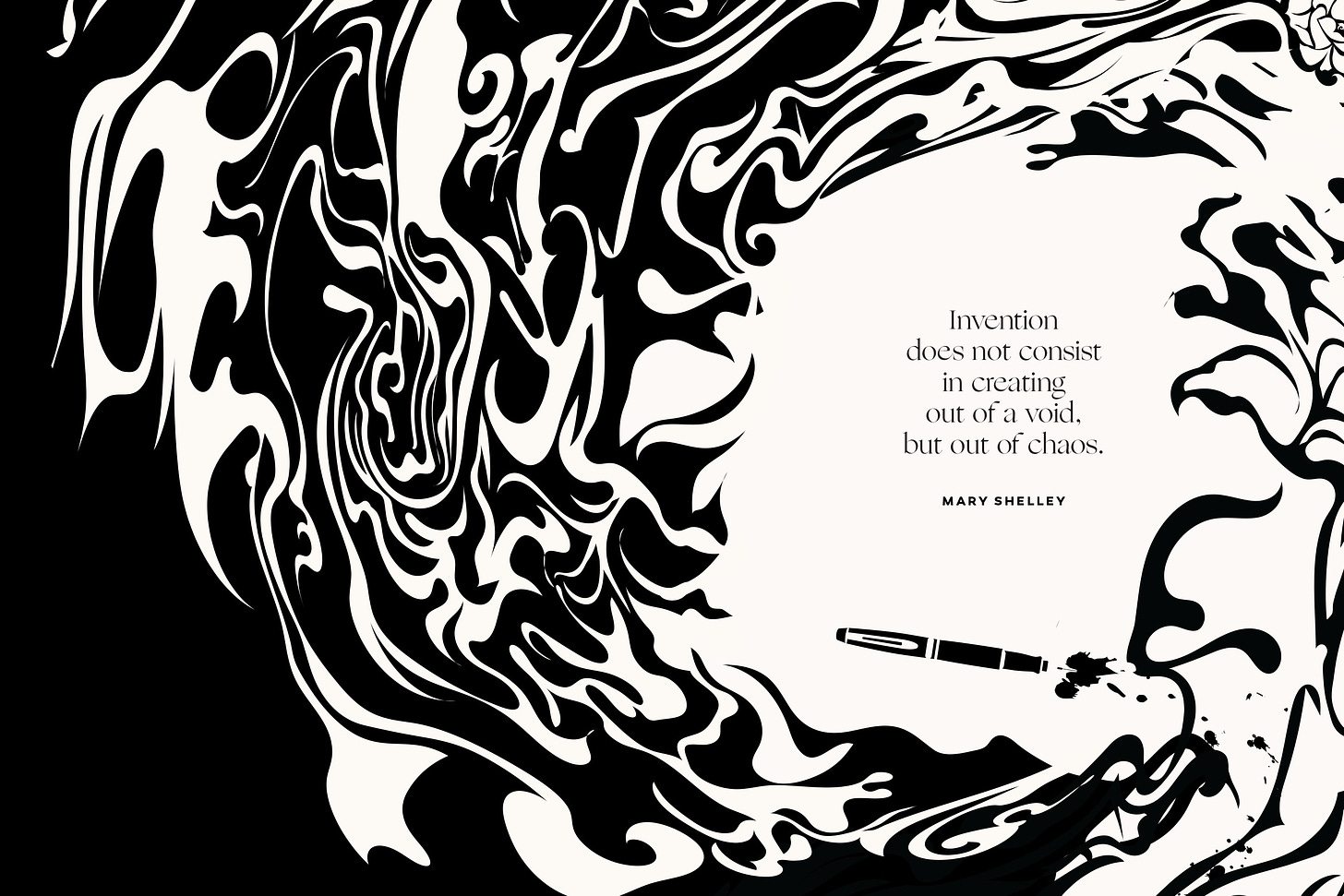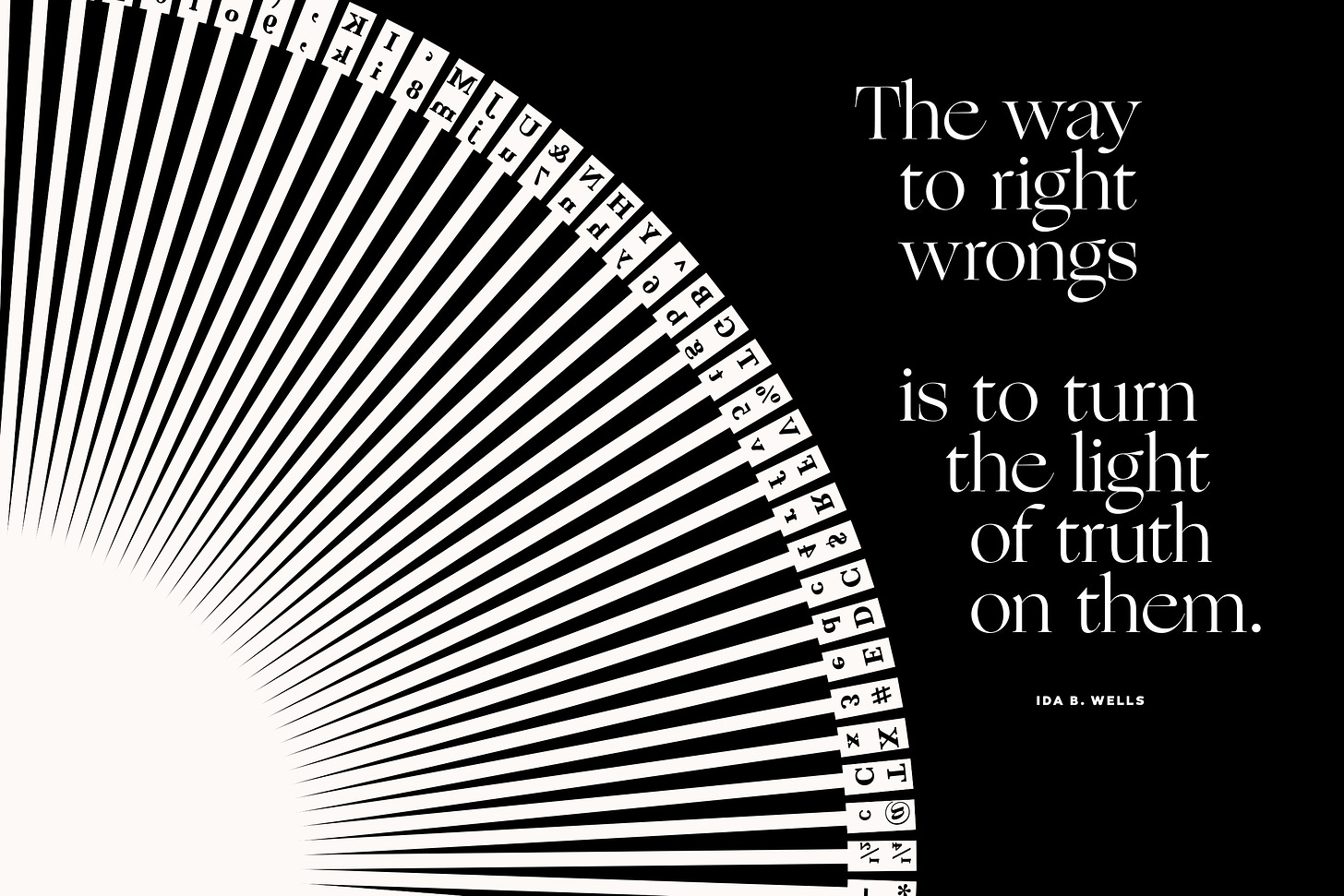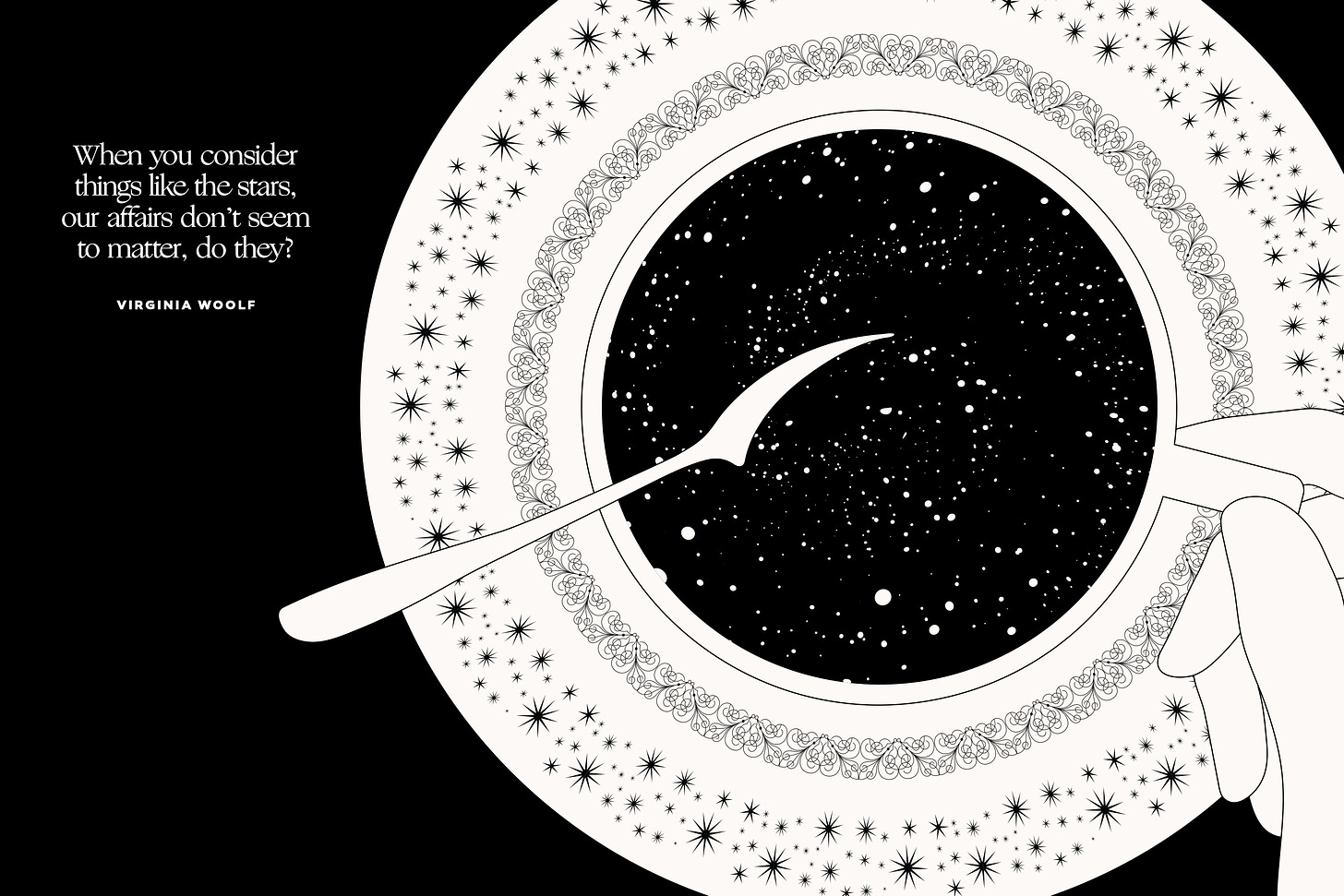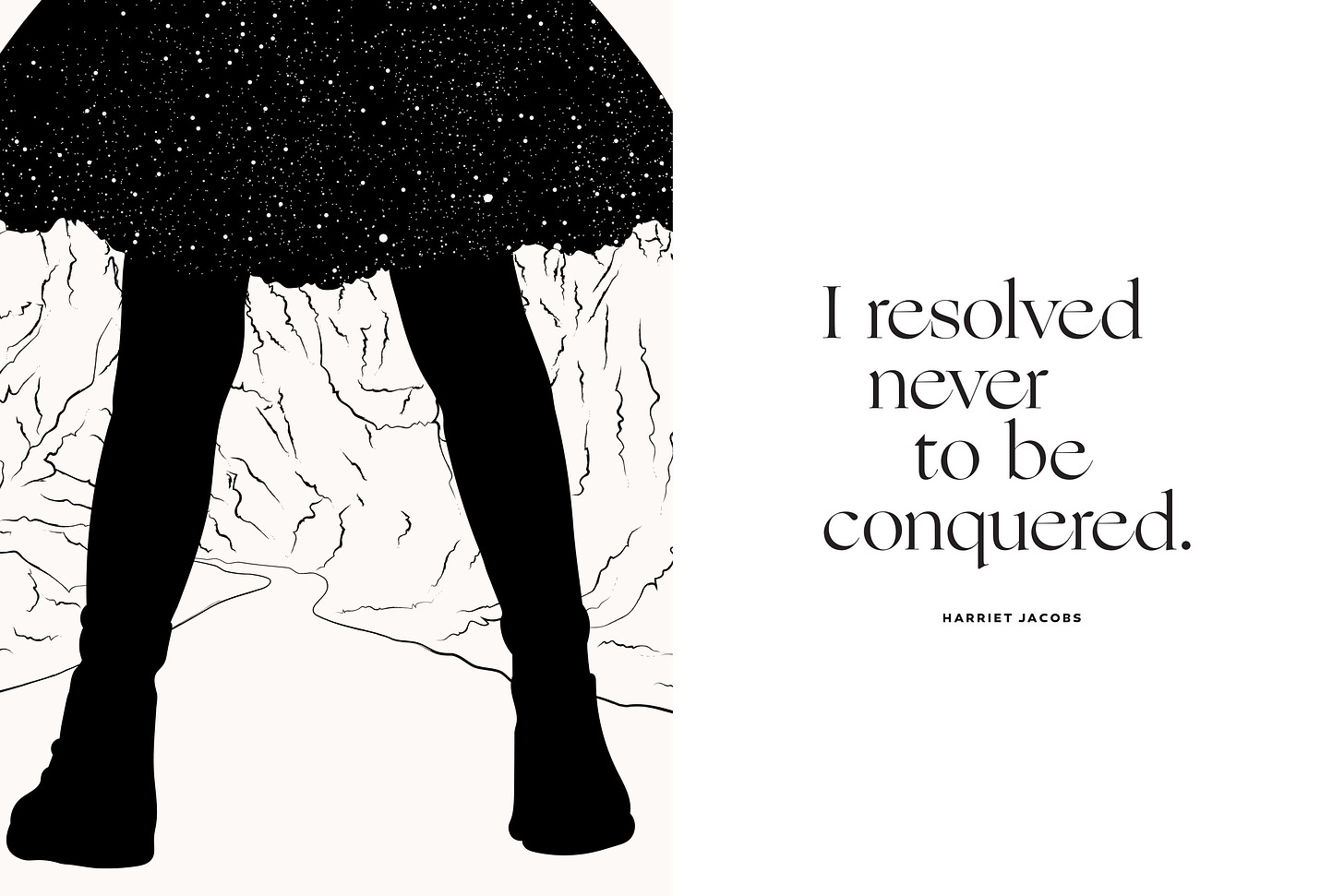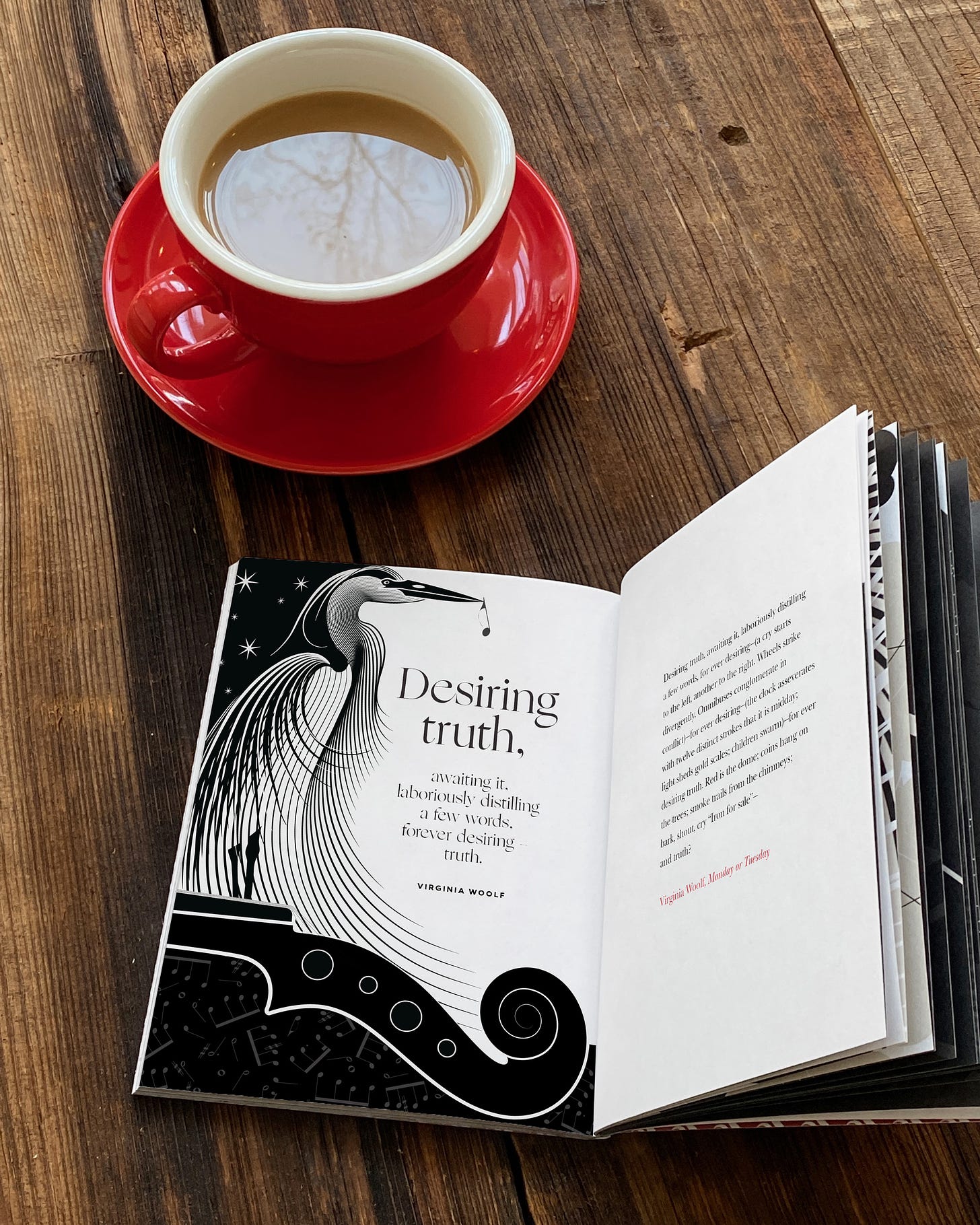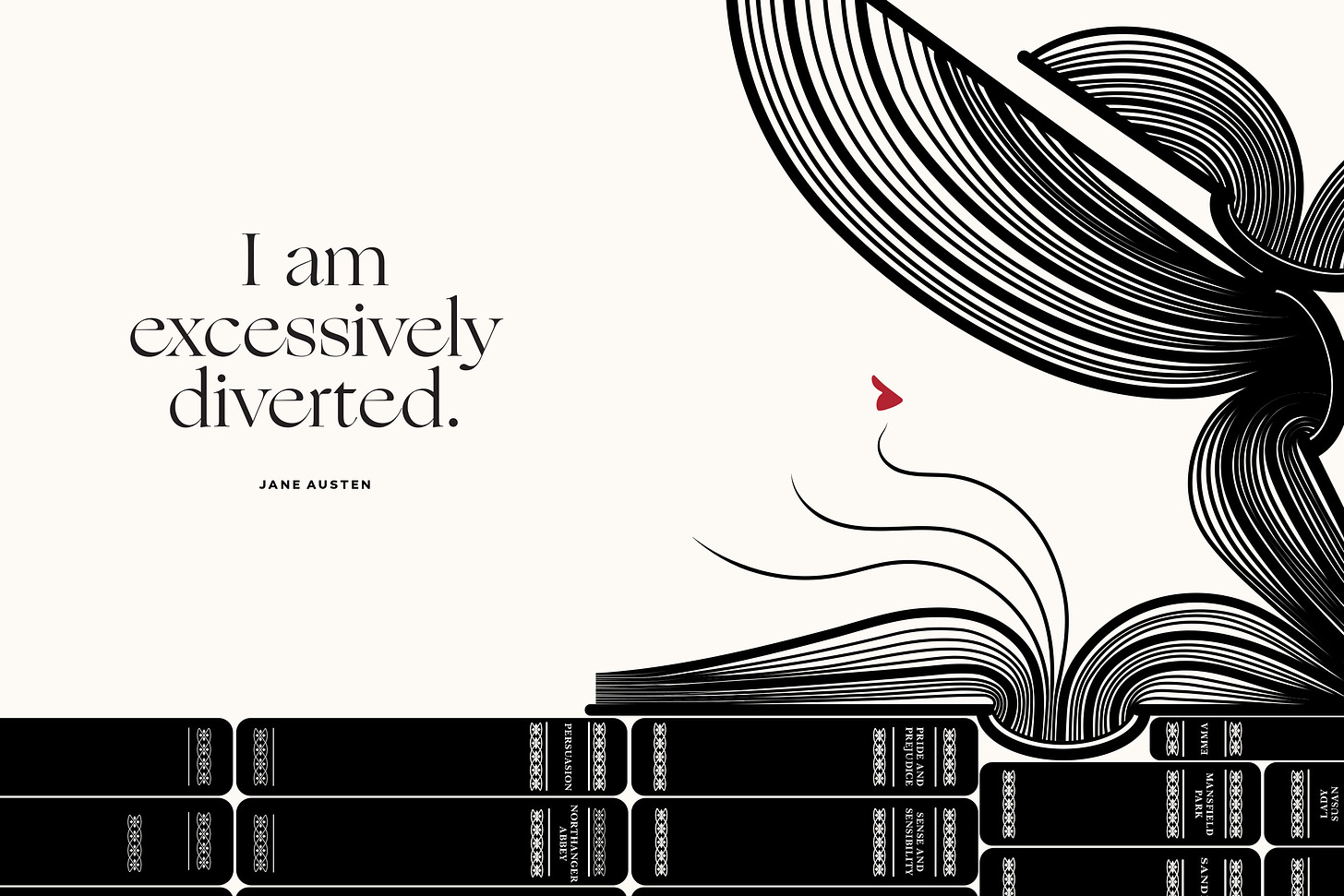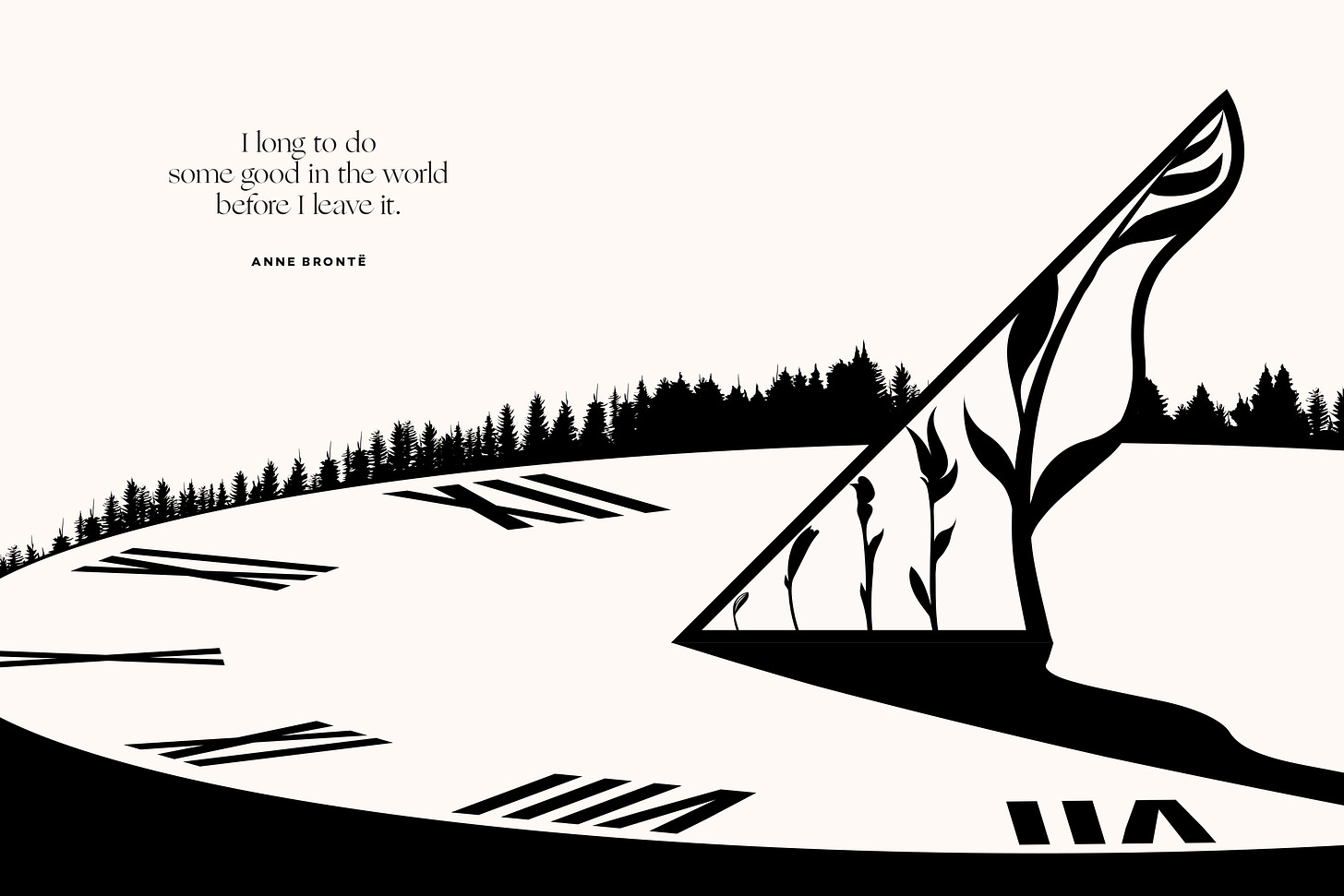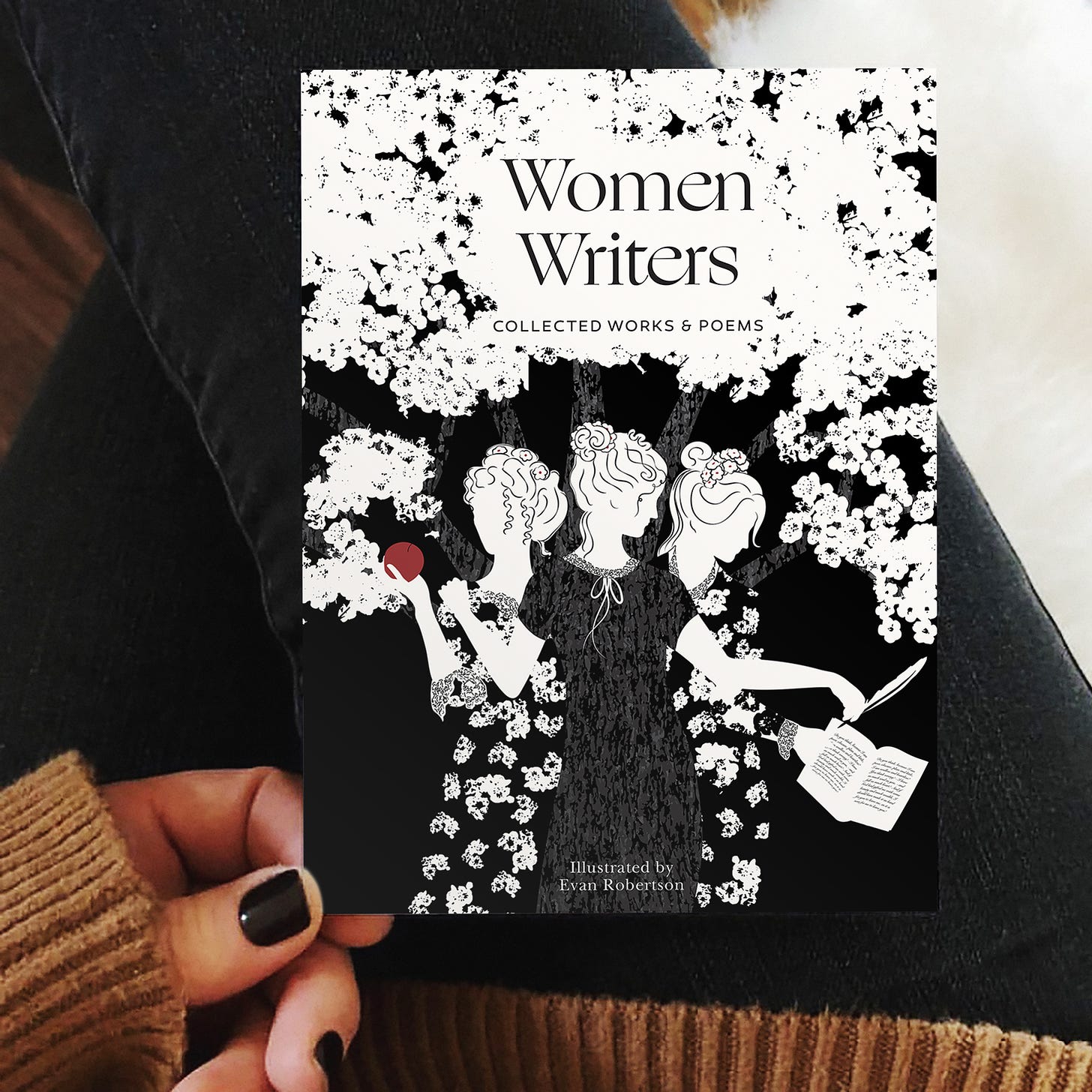
The Women Writers Collection
“I am no bird, and no net ensnares me.” - Charlotte Brontë
As a kid, I remember reading an old newpaper comic strip that had an image of a family at a “Fred Estaire Film Festival.” The mom was looking at the dad and saying “Sure he was great, but Ginger Rogers did everything he did … backwards and in high heels!”
That’s my impression of most all of the women in this collection, which spans historically from antiquity to the early 20th century. Writing something of lasting value is difficult enough. Doing so while overcoming a bias against you - or dodging it with a male pen name - is a monumental task.
As such, there are simply fewer female authors of note from this time frame. Fewer people participating means fewer exceptional people succeeding. And so when I first began illustrating some favorite literary quotes way back in 2011, the collection was small and mostly male. The first collection of my work was published by Penguin in 2013, and had a woefully low number of women authors in it.
So the following year, Nichole and I decided to expand the collection to include as many notable women authors as possible. We ruminated about how to expand the collection of art inspired by women authors, we were keen to stay focused on the extraordinary creative and intellectual contributions that they made, rather than fixate on the barriers they faced in doing so. Barriers are important to understand, but it’s the breaking through that inspires, not the obstacle. The work one achieves is all that matters in the end, and these women achieved so much.
They aren’t in a particular order, and I decided not to contrive some grand meta-narrative around the collection, apart from the theme. But once they are all placed in the same book, on opposite pages and ordered to make sense, if nothing else, of the pacing and the conversation that they collectively have with the reader, I can’t help but feel that there is a kinship there. And that creates its own story, created collectively among these talented writers. It makes me wonder: What advice would Mary Wollstonecraft have had for Kate Chopin? What wisdom could Ida B. Wells have shared with Virginia Woolf?
Of course the kinship between them is partly imagined, and there are probably a few authors in here that would have strongly disagreed with each other, but there would have been surprising friendships, as well as documented admiration. As a literary critic, Woolf praised Charlotte Brontë. George Eliot referenced Sappho in Middlemarch. Dickinson was influenced by Elizabeth Barrett-Browning, Maya Angelou by Zora Neale Hurston, Toni Morrison by Virginia Woolf, and so on.
A compilation is by its nature a bit disjointed, but that can be fun in its own aesthetic way. Does anyone here remember mix tapes? When a friend would make one for me, I never looked at the playlist. I loved the anticipation in the gaps between songs - what would come next? Unlike an album from a band, where every song was carefully planned in a particular order, and all of them had been recorded on the same instruments by the same musicians in the same creative headspace, a mix tape defied continuity and reflected a more unusual narrative of events.
I’d like to think of these compilations in a similar way. Each author is speaking from their own time about their own themes, and each page can inspire the reader to discover or rediscover an author that speaks to them. But when you put them together, they can illuminate their own story of the world, one brilliant fragment at a time.
Some wrote quite directly about the social barriers they faced - Kate Chopin, Wollstonecraft, Wells, Jacobs - others wrote more obliquely about these challenges - Austen, the Brontë sisters and Gaskell.
In her own time, Sappho was known as the “tenth muse.”
George Eliot, née Mary Ann Evans, began her career as a novelist by writing an essay, “Silly Novels by Lady Novelists,” criticizing the trivial plots and themes of her contemporary women writers.
Jane Austen published anonymously as well, simply assigning credit to “By a Lady.” The Brontë sisters wrote under the male pen names Acton, Ellis and Currer Bell.
Colette famously had to battle for recognition as the author of her Claudine series, the copyright belonging to her ex-husband, the writer Willy.
Regardless of their vastly different times and experiences, each of these women personally inspired me with their truth-telling, fierce independence and unwavering commitment to, as Sappho put it, “become a voice.” I’m honored to share some of my visual responses to their wise words.
All of the above illustrations and many more are from the book Women Writers: Collected Works and Poems, an illustrated collection of poetry and prose by women, written between 600 BCE and 1925 CE. It is available for purchase here.


